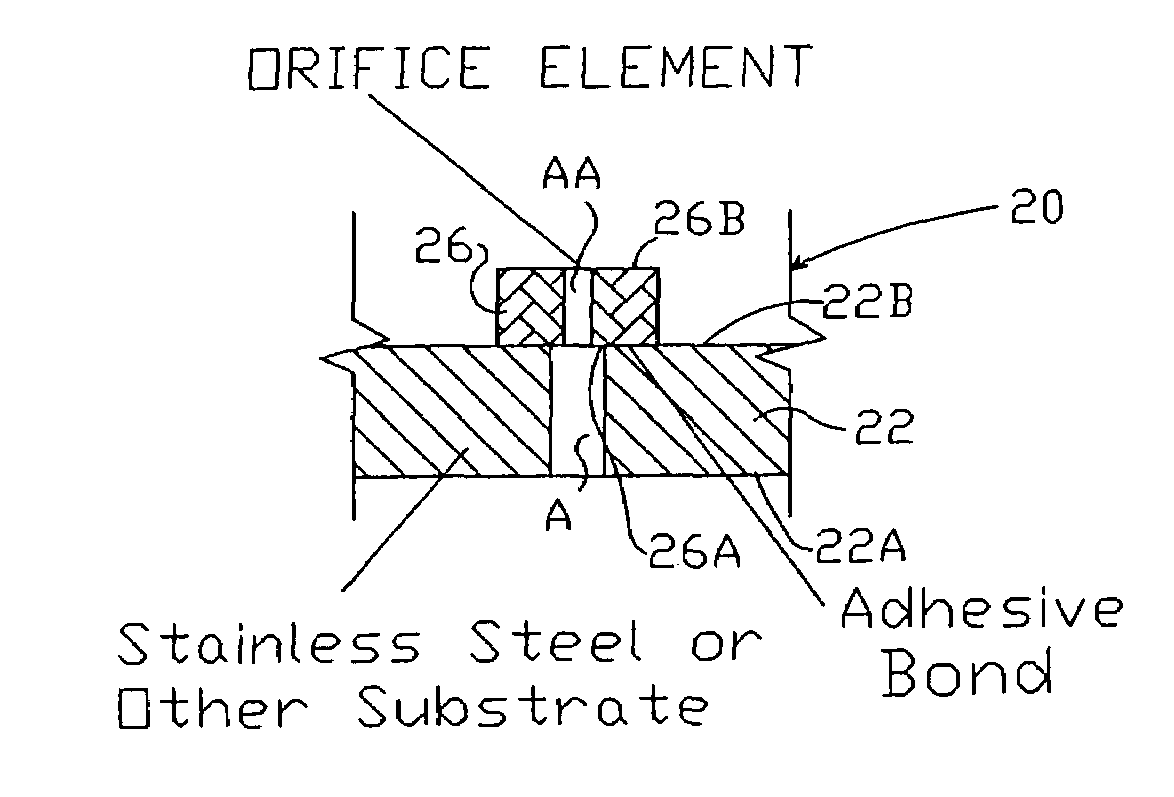Composite hydroentangling nozzle strip and method for producing nonwoven fabrics therewith
a technology of nozzle strip and composite hydroentangling, which is applied in the direction of spray/projecting, lighting and heating apparatus, and drying machines with progressive movements, etc. it can solve the problems of ineffective entanglement of fibers, many design process constraints, and broken water jets that have practically no utility, so as to improve cohesion and appearance.
- Summary
- Abstract
- Description
- Claims
- Application Information
AI Technical Summary
Benefits of technology
Problems solved by technology
Method used
Image
Examples
Embodiment Construction
[0044]As discussed above, conventional hydroentangling nozzles made of stainless steel and other metals are known to undergo severe erosion in a relatively short period of time. At higher pressures, the nozzles tend to erode more rapidly, which leads to formation of a non-constricted water jet, or spray, which lowers the effectiveness of the hydroentangling process. Nozzles that fail due to erosion must be replaced, imposing a large replacement cost for the process and an undesirable stoppage in production line. Other prior art nozzles have incorporated other materials, such as sapphire, inside the nozzle assembly itself, but this has led to numerous production problems inherent with replacing inner parts of nozzle strip assemblies.
[0045]Applicants have discovered a novel composite hydroentangling nozzle strip which has a higher degree of erosion resistance than previous prior art nozzle strips. The improved composite nozzle strip comprises a substrate, such as non-corrosive stainle...
PUM
| Property | Measurement | Unit |
|---|---|---|
| aspect ratio | aaaaa | aaaaa |
| aspect ratio | aaaaa | aaaaa |
| thickness | aaaaa | aaaaa |
Abstract
Description
Claims
Application Information
 Login to View More
Login to View More - R&D
- Intellectual Property
- Life Sciences
- Materials
- Tech Scout
- Unparalleled Data Quality
- Higher Quality Content
- 60% Fewer Hallucinations
Browse by: Latest US Patents, China's latest patents, Technical Efficacy Thesaurus, Application Domain, Technology Topic, Popular Technical Reports.
© 2025 PatSnap. All rights reserved.Legal|Privacy policy|Modern Slavery Act Transparency Statement|Sitemap|About US| Contact US: help@patsnap.com



